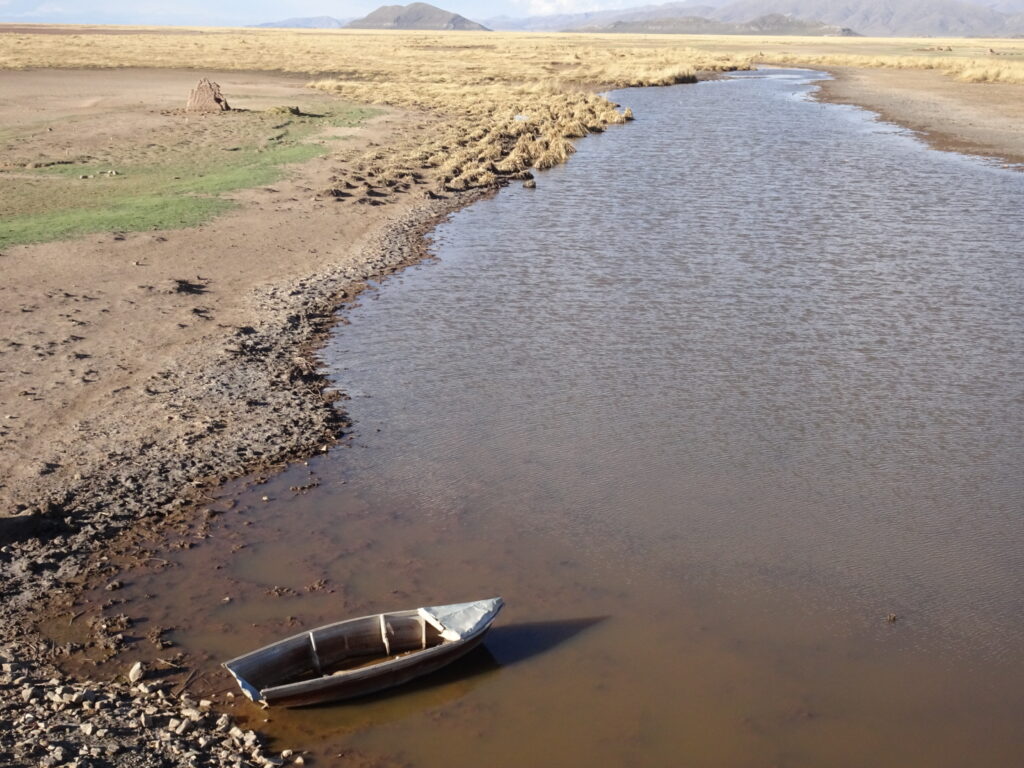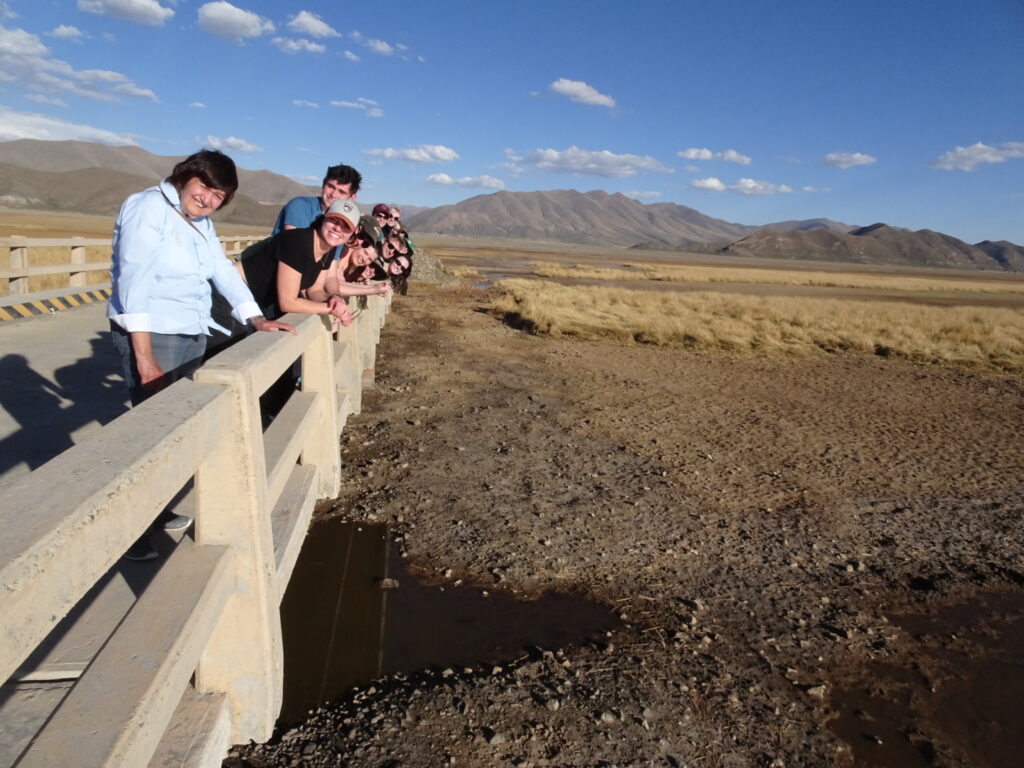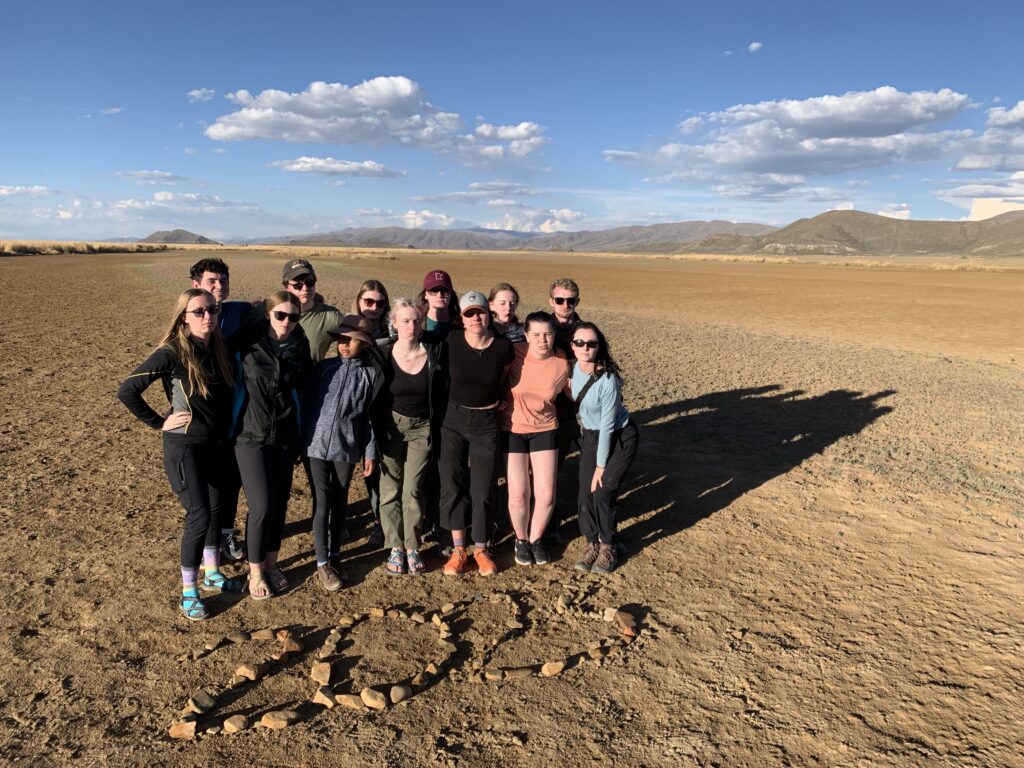Bolivia once had two large lakes, Titicaca in the north on the border with Peru, and Poopó between Oruro and the Salar de Uyuni. At its maximum Lake Poopó covered 390 square miles and supported thriving populations of fishes, waterfowl, plants, and other animals, and supported the fishing economy of the Uru-Chipaya people who lived on its shores. In December 2015 it dried out completely, leaving just a flat expanse of dirt that has been gradually sprouting desert vegetation. We stopped on our way back to Oruro to look at what was left of this once great lake.
 The causes of Poopó’s decline are many and complicated, but the three big ones seem to be 1) loss of inputs of meltwater from glaciers in the surrounding mountains as the glaciers shrank and contributed less water, 2) changing rainfall patterns that led to more periods of drought, and 3) diversions of water from its primary input, the Rio Desaguadero, for mining and agriculture. The first two are related to a changing climate, so we had to check it out. Jaime (our driver) eased our bus down a potholed road until we got to a bridge over the Rio Desaguadero. For the past mile we’d passed open, flat expanses that were once submerged by water, and at the river we even found a little stagnant water persisting. But the great Lago Poopó had been reduced to this muddy hole, and a lot of square miles of flat desert scrub. It was very sad to imagine the water lapping at the road, the fishing boats bobbing on its surface, and ducks, geese, terns and other creatures hunting the fishes and aquatic invertebrates, the reeds in the shallow areas teeming with life. Now it was almost all gone. We ceremonially tossed pebbles into the water, then went back to stand on the dry lakebed.
The causes of Poopó’s decline are many and complicated, but the three big ones seem to be 1) loss of inputs of meltwater from glaciers in the surrounding mountains as the glaciers shrank and contributed less water, 2) changing rainfall patterns that led to more periods of drought, and 3) diversions of water from its primary input, the Rio Desaguadero, for mining and agriculture. The first two are related to a changing climate, so we had to check it out. Jaime (our driver) eased our bus down a potholed road until we got to a bridge over the Rio Desaguadero. For the past mile we’d passed open, flat expanses that were once submerged by water, and at the river we even found a little stagnant water persisting. But the great Lago Poopó had been reduced to this muddy hole, and a lot of square miles of flat desert scrub. It was very sad to imagine the water lapping at the road, the fishing boats bobbing on its surface, and ducks, geese, terns and other creatures hunting the fishes and aquatic invertebrates, the reeds in the shallow areas teeming with life. Now it was almost all gone. We ceremonially tossed pebbles into the water, then went back to stand on the dry lakebed.
 For us, this was an object lesson in the impacts of climate change and poor water management. For the Uru-Chipaya, the “people of the water,” it meant the end of their 1000-year old way of life. Now I’m told that many of them work in the nearby mine, contributing to the loss of water from this once productive lake.
For us, this was an object lesson in the impacts of climate change and poor water management. For the Uru-Chipaya, the “people of the water,” it meant the end of their 1000-year old way of life. Now I’m told that many of them work in the nearby mine, contributing to the loss of water from this once productive lake.

On the bottom of Lake Poopó